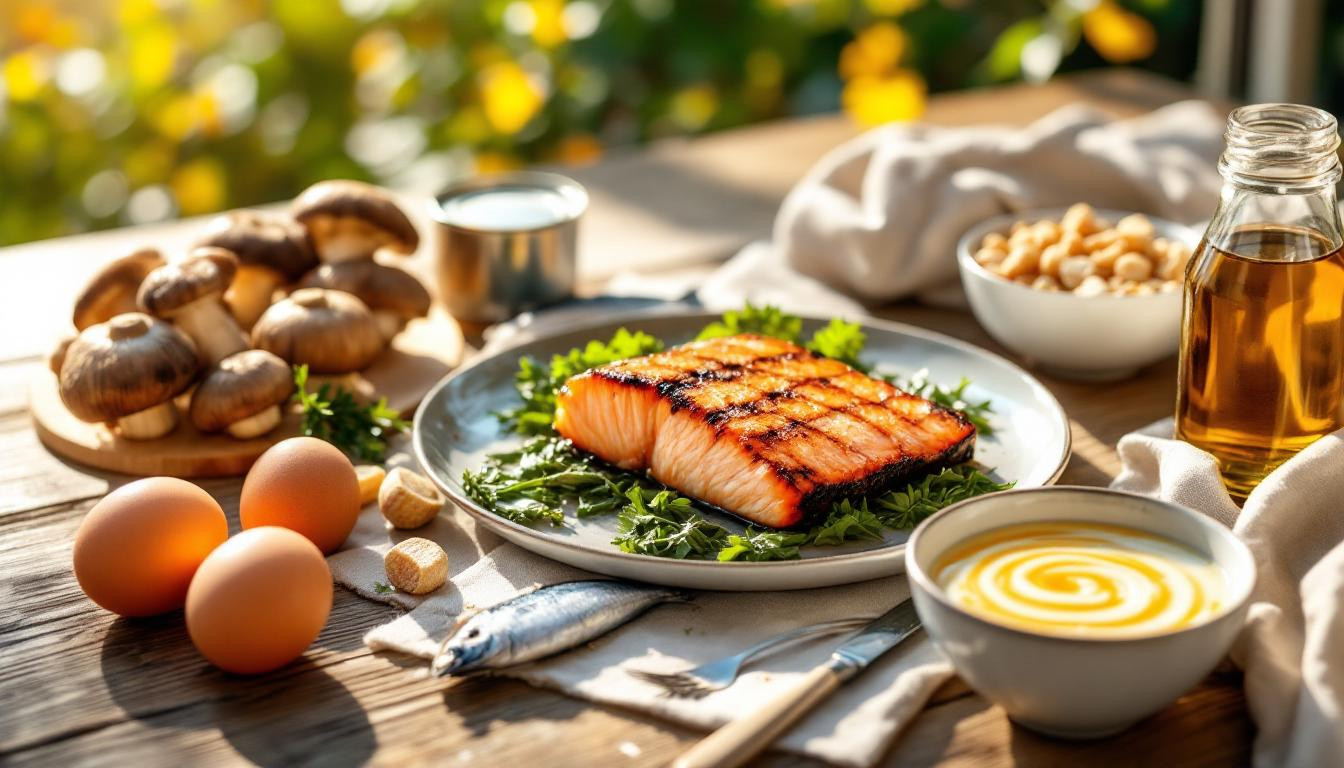Ever feel sluggish during the winter months? The solution might be hiding in your kitchen. Vitamin D, often called the sunshine vitamin, plays a crucial role in bone health, immune function, and mood regulation. While our bodies naturally produce it when exposed to sunlight, food sources become essential during darker months or for those with limited sun exposure.
Why vitamin D matters more than you think
“Vitamin D deficiency affects nearly 1 billion people worldwide, yet many aren’t aware they’re lacking this essential nutrient,” explains Dr. Melissa Chen, nutritionist at the Austin Wellness Institute. “Low levels can contribute to fatigue, muscle weakness, and even depression.”
Let’s explore seven powerful food sources recommended by health experts to boost your vitamin D levels naturally.
Fatty fish: Nature’s vitamin D powerhouse
Wild-caught fatty fish top the list of natural vitamin D sources. A 3-ounce serving of sockeye salmon delivers an impressive 14.2-18 mcg of vitamin D, providing up to 90% of your daily requirement. Rainbow trout offers even more, with 16.2 mcg per serving.
“I recommend fatty fish twice weekly for my patients concerned about vitamin D levels,” shares Dr. James Wilson, endocrinologist at Memorial Health. “Beyond vitamin D, the omega-3 fatty acids provide additional anti-inflammatory benefits.”
Fish liver oil: The concentrated option
For those who don’t enjoy eating fish, cod liver oil provides a potent alternative. Just one tablespoon contains a whopping 34 mcg—170% of your daily vitamin D needs! Think of it as liquid sunshine in a bottle, perfect for those gray winter days.
Humble egg yolks: Small but mighty
Though modest in their vitamin D content (0.6-1.1 mcg per egg), eggs remain an accessible everyday option. Free-range or pasture-raised varieties contain significantly higher levels than conventional eggs, as these chickens have greater sunlight exposure.
UV-treated mushrooms: The plant-based surprise
Mushrooms are the plant kingdom’s vitamin D miracle. When exposed to ultraviolet light, they produce impressive amounts of vitamin D2—with UV-treated varieties offering 9.2 mcg per half cup. Portobello mushrooms exposed to UV light can provide 8 mcg per 3-ounce serving.
“Mushrooms exposed to UV light are the most overlooked vitamin D source for vegetarians and vegans,” notes nutritionist Emma Rodriguez. “They’re like little solar panels, converting light energy into this essential vitamin.”
Fortified foods: Everyday options
Many common foods are fortified with vitamin D, making it easier to meet your daily requirements:
- Fortified milk (2%): 2.9 mcg per cup
- Greek yogurt (fortified): 3 mcg per cup
- Fortified breakfast cereals: approximately 2 mcg per serving
- Fortified plant-based milks: 2.5-3.6 mcg per cup
Canned fish options: Budget-friendly choices
Canned sardines provide 1.2 mcg of vitamin D per pair, while light canned tuna offers a mercury-conscious option. These shelf-stable options create a practical vitamin D safety net for your pantry.
Building a vitamin D-rich eating plan
For optimal vitamin D intake, consider these strategic pairings:
- Scrambled eggs with UV-treated mushrooms
- Fortified cereal with vitamin D-enriched milk
- Salmon with vitamin C-rich fruits (vitamin C enhances absorption)
- Greek yogurt with fortified granola and fiber-rich berries
Are you getting enough vitamin D from your diet? These seven foods represent your body’s best defense against deficiency when sunlight is limited. Like deposits in a health savings account, each vitamin D-rich meal contributes to your overall wellness reserve, supporting everything from immune function to mood stability. Start incorporating these powerful options today—your body will thank you with increased energy, stronger bones, and improved wellbeing all year round.
